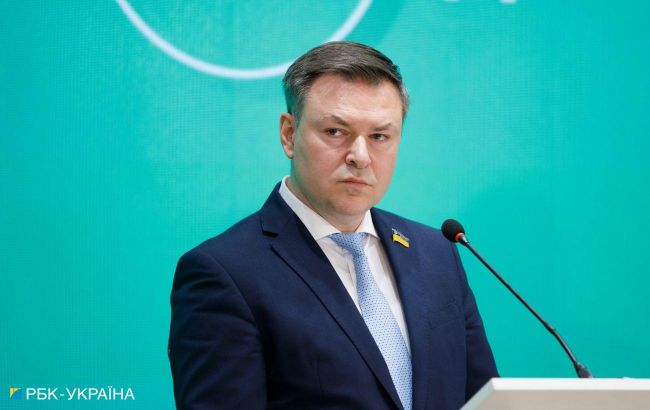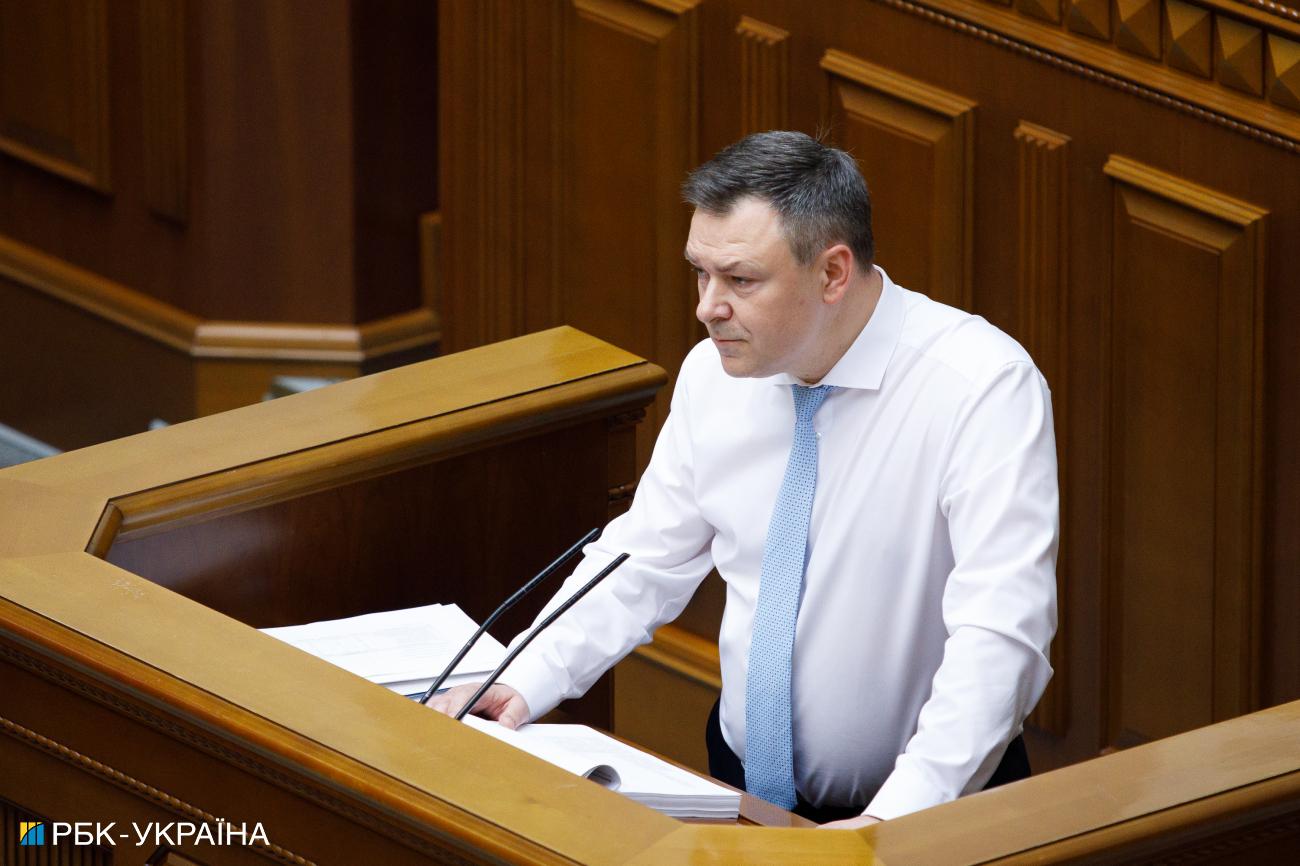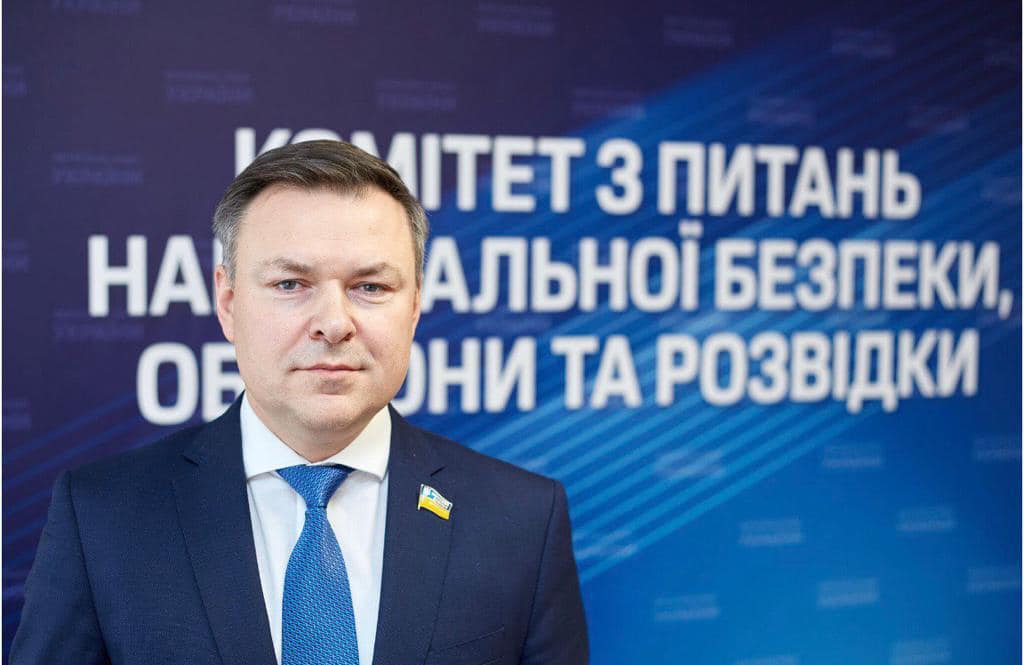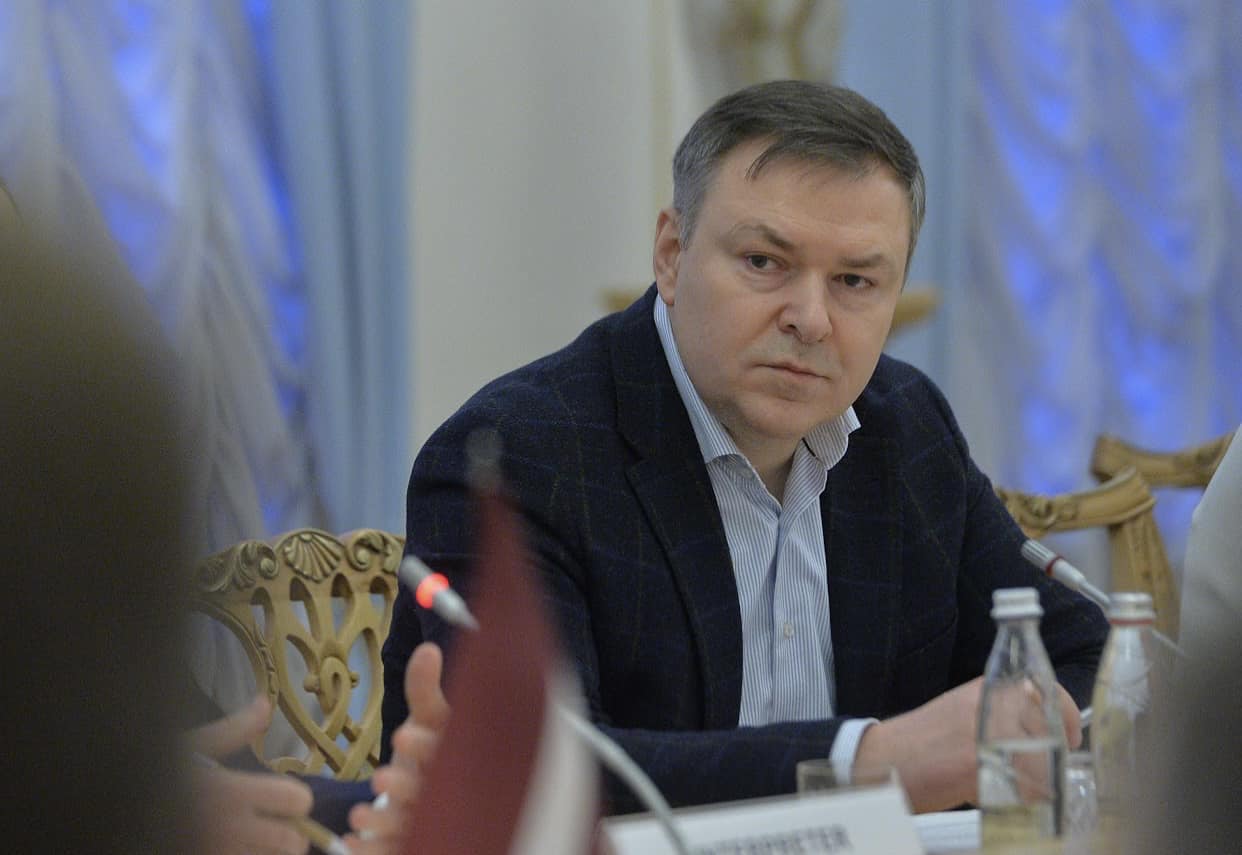Chairman of Ukraine's Parliament Committee on mobilization, military-industrial complex and front situation
 Oleksandr Zavitnevych, the Chairman of the Verkhovna Rada Committee (Photo: RBC-Ukraine, Vitalii Nosach)
Oleksandr Zavitnevych, the Chairman of the Verkhovna Rada Committee (Photo: RBC-Ukraine, Vitalii Nosach)
Oleksandr Zavitnevych, the Chairman of the Verkhovna Rada Committee on National Security, Defense, and Intelligence, spoke about the draft law on mobilization, violations by the Territorial Recruitment Centers (TRCs), the scale of Ukrainian military equipment production, and whether the war has reached an impasse in an interview with RBC-Ukraine.
On the situation with mobilization and the work of the Territorial Recruitment and Social Support Centers in Ukraine
In the Verkhovna Rada, there are plans to adopt a new mobilization and military accounting law. The document's final text is currently unknown, and the registered bill in parliament may be returned to the Cabinet of Ministers for further refinement.
According to Zavitnevych, there are gaps in the current mobilization mechanisms, leading to cases where representatives of the TRCs forcibly recruit people on the streets.
"Such cases are violations of the laws, each requiring investigation and appropriate response. As far as I know, this is being done, personnel decisions are made, and there is a rotation of employees," explained the National Security Committee of the Council chairman.
One step to address the situation was the law on the establishment of Territorial Recruitment and Social Support Centers (TRCs and SSCs) in March 2021, replacing military enlistment offices. The implementation of the "Oberih" system, which involves transitioning to digital mobilization resource accounting, was initiated.
Due to the full-scale Russian aggression, the implementation of these changes slowed down, according to Zavitnevych. Therefore, work on improving the mechanisms of TRCs and SSCs still needs to be completed. There are several proposals, and one of them is to remove TRCs and SSCs from the structure of the Ground Forces and transfer them to the Ministry of Defense of Ukraine.

Photo: RBC-Ukraine, Vitalii Nosach
On the achievements of the Ukrainian defense industry complex
The goal of Ukraine is to quickly reach the maximum level of satisfying the front's needs by producing its own or jointly producing products with partners. The work is proceeding in two directions, explains the parliamentarian. The first is the initiation of new vocabularies of defense products. This includes well-known items such as drones and artillery shells. The second direction is the revival of defense capabilities that Ukraine had in the past, such as tanks, missiles, aircraft, and shipbuilding.
Speaking of achievements, at the end of August, Ukraine successfully used its long-range weapons, hitting a target at a distance of 700 km. Over 50 producers of ammunition for drones of various types, both state and private, capable of producing ammunition weighing from 300 g to 10 kg, have been created. The production of weapons and equipment has tripled, mines have increased by 42 times, and artillery shells have tripled.
"We started developing 155 caliber shells, so-called NATO caliber, and their mass production is planned for 2024, provided there is no shortage of explosives - powders that can be supplied from NATO countries. The ratio of private companies to state ones is 4 to 5, and the share of production is approaching that provided by the state sector," Zavitnevych said.
According to him, leading foreign companies in producing military equipment and weaponry are also highly interested in launching production in Ukraine. At the end of September, representatives of 252 defense companies from more than 30 countries joined the first international forum of defense industries. A decision was made on the joint production of arms by Ukraine and the United States, including air defense systems. Several joint ventures are already functioning successfully. Cooperation with foreign companies in producing air defense systems, drones, armored vehicles, and artillery is underway.
"There is also significant interest generated by companies taking the threat of aggression from Russia against other European countries seriously. Therefore, they need to understand how competitive their military products are compared to corresponding Russian samples in real combat conditions," explained the chairman of the Council's committee.

Photo: Facebook of Oleksandr Zavitnevych
Is the situation on the front considered deadlocked and in a stalemate?
The narrative that the war has reached a deadlock is being propagated by Russian propaganda, according to Zavitnevych. Currently, Moscow is attempting to divert attention from the failure of its plans in 2022 and 2023 for the complete occupation of the Ukrainian regions hastily declared by Putin. To achieve this, the Russians focus the international community's attention on just one fragment of the Russian-Ukrainian war – our counteroffensive during the summer-fall campaign – with a focus on meters and kilometers of our forces' advancement.
Zavitnevych noted that predominantly positional battles are taking place on the front today. However, this can be interpreted as a victory for the Russians.
"The logic of the enemy is clear – to convince our partners, the global community of the impracticality of continuing security assistance to Ukraine, impose a narrative of the inevitability of compromises with the Russian Federation, and force recognition of the occupied Ukrainian territories within its composition. But freezing the war is needed by Putin as an investment of time to build up forces for the restoration of Ukraine's occupation. I want to emphasize that Ukraine is not the final destination for the Russian death machine; other European countries will be next," said the parliamentarian.
In his opinion, one should not assess the course of the war in 2023 solely by the advancement of our troops because the Ukrainian counteroffensive allowed sealing the enemy on the confrontation line, depriving it of the ability to reinforce defensive positions and create strike groups, even for an operational-tactical advance into the depths of Ukrainian territory.
Additionally, numerous strikes on military objects on the enemy's territory reduced its combat capability. Operations by the General Staff of the Armed Forces, the Security Service, and the Navy in the Black Sea and occupied Crimea led to the neutralization of the Russian Black Sea fleet and transformed the occupied Sevastopol into a front-line city. Another indicator of the summer-fall campaign was Ukraine establishing its corridors for grain exports.
"However, all this somehow fell out of sight for some representatives of Western partners. While talking to them, I often had to, as they say, explain on my fingers the danger of substituting the paradigm of perception of the Russian-Ukrainian war – that is, through the prism of what Ukraine has achieved or not, instead of evaluating the achievements of the initiator of this war – the Russian Federation. Then it becomes clear that neither in 2022 nor 2023 did the enemy achieve any goals of the so-called Special military operation," Zavitnevych added.
He emphasized that the restoration of Ukraine within the borders of 1991 is not just a territorial issue between Russia and Ukraine. It is the main prerequisite for protecting the world from Russian imperial tyranny, a preventive measure against other possible acts of aggression and military conflicts.
"Without the restoration of the territorial integrity of Ukraine within the borders of 1991, there is no other option for ending the war for us and for the world community – building a new comprehensive security system. Without guaranteed punishment of the Russian aggressor, his example will inspire other authoritarian regimes and terrorist groups," the parliamentarian believes.

Photo: Facebook of Oleksandr Zavitnevych
On the reduction of assistance from the West
Data from the Ukraine Support Tracker by scholars from Kiel University indicate that the volumes of assistance from Ukraine's partners have fallen to the lowest level since the beginning of the major war. According to Zavitnevych, one reason is the unpreparedness of NATO countries' military-industrial complex for a war of such duration, with such intensity of ammunition spending on the battlefield and the need for military equipment. The reserves in Western countries' warehouses have been largely depleted and require investment for replenishment.
Another reason is the objective processes and procedures through which the Western economy operates. There is no state of war there, so there is no opportunity to abruptly change the volumes of orders and allocate resources for the production of weapons and military equipment.
"Unlike authoritarian forms of governance, where contracts, state orders, and even the reprofiling of entire enterprises can be changed manually, it is a market economy in the West. Everything happens in an orderly manner in peacetime, where the concept of a contract, responsibility for its execution, and large fines for violations apply," Zavitnevych explained.
As for security assistance from the United States, it has become a hostage to political processes determined mainly by the approaching presidential elections. However, this is crucial, discussions in the U.S. political arena are ongoing regarding the mechanism of assisting Ukraine. At the same time, bipartisan support for Ukraine in repelling Russian aggression remains unchanged.
"A significant potential lies in the prospect of transferring frozen assets of the Russian Federation, amounting to about $300 billion, to Ukraine. Western leaders have not dared to take a decisive step to transfer this money to Ukraine so far. President Zelenskyy has a compelling argument on this matter – Russian elites and leadership are indifferent to human lives, but above all, they are not indifferent to money. The loss of assets will be the most painful loss for them," the parliamentarian believes.

